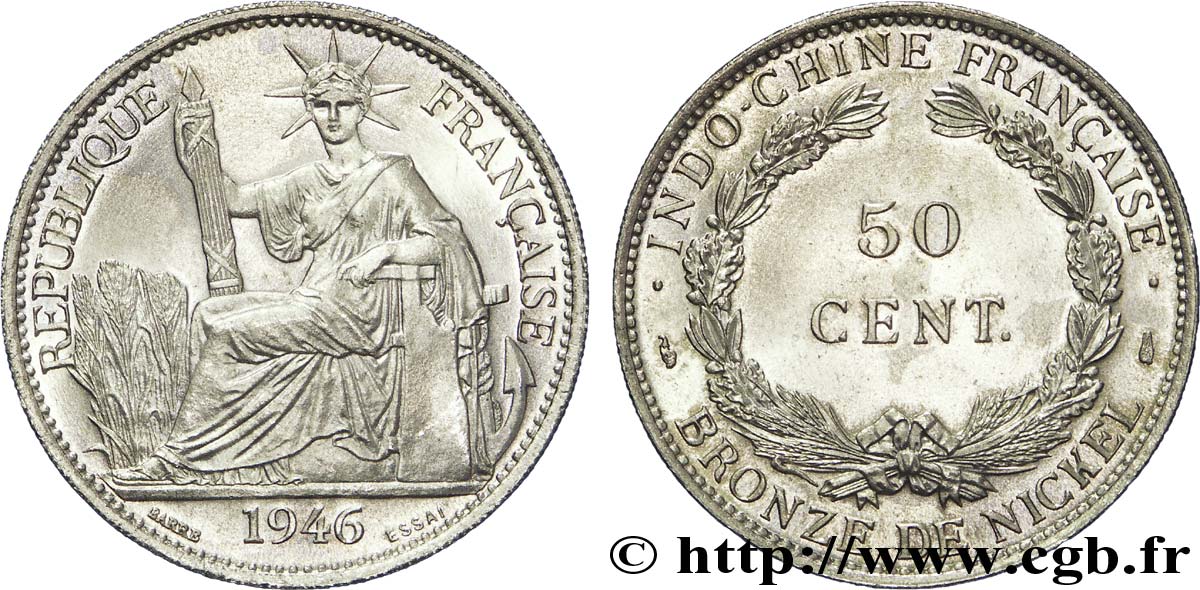正面
正面的文字 REPUBLIQUE - FRANÇAISE// (1946) À L'EXERGUE ET BARRE / ESSAI.
正面的说明书 La République assise à gauche de trois quarts de face, radiée et drapée tenant un faisceau de licteur, appuyée sur un gouvernail et une ancre ; devant elle une rizière ; signé BARRE à l'exergue.
背面
背面的文字 .INDO-CHINE FRANÇAISE. / BRONZE DE NICKEL.
背面的说明书 En légendes circulaires, au centre en deux lignes : 50/ CENT..
历史细节
PROVISIONAL GOVERNEMENT OF THE FRENCH REPUBLIC - INDOCHINA
On March 9, 1945, the Japanese army attacked the French garrisons by surprise, resulting in the death of nearly 3,000 French people in less than two days.. This operation contributes to destroy the colonial administration. Japan also encourages the formation of nominally independent regimes, as part of its Greater East Asia Co-Prosperity Sphere.. In the aftermath of the Japanese evacuation, Laos and Cambodia manage to have their sovereignty recognized smoothly. The same is not true in Vietnam, a strategic and economic issue of a completely different importance.. The Vietminh and other pro-independence groups seek to establish their authority over the country. In Potsdam, in 1945, Truman and Stalin, unfavorable to French colonialism, decided to divide Vietnam into two parts: the north under the influence of the Chinese led by Chiang Kai-shek) and the south under the influence of the British. directed by Douglas David Gracey. General Leclerc and the second DB are sent by General Charles de Gaulle, head of the provisional government, to restore the authority of France and regain control of Indochina after the Second World War. Negotiations are opened and lead to the agreements of March 6, 1946 under which Vietnam is free (but not independent, because it is part of the French Union). These agreements, signed by Ho Chi Minh and Jean Sainteny, do not last. Leclerc reconquers Cochinchina, but considers Vietnamese independence inevitable. The Vietminh tries to ban the French from the port of Haiphong. The bombardment of it by the French fleet makes the conflict inevitable. The Indochina War followed, after which France left the peninsula in 1954 after the rout of Dien Bien-Phu. The Geneva Accords split Vietnam temporarily into two states, but the failure to hold reunification elections in 1956 led to the Vietnam War in 1964.








 对产品描述纠错
对产品描述纠错 打印
打印 分享我的选择
分享我的选择 提问
提问 Consign / sell
Consign / sell




